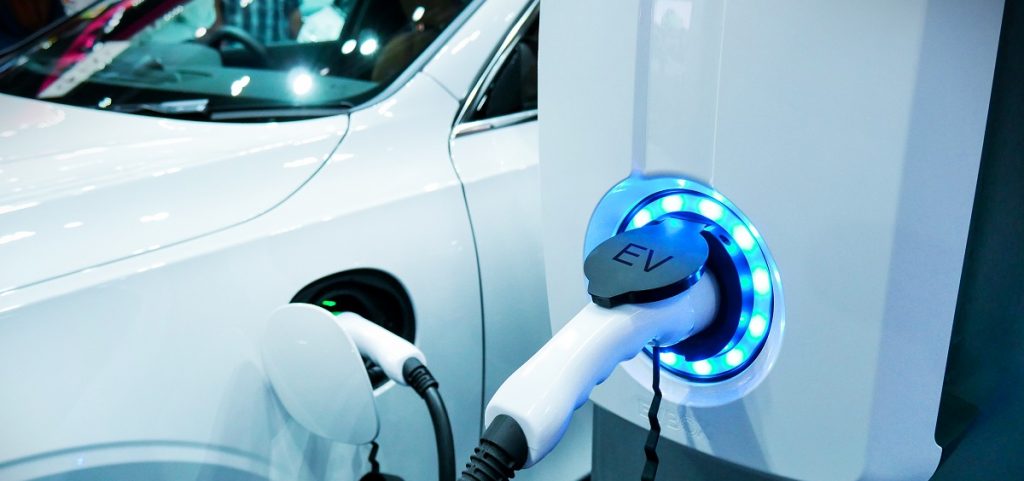News
Ohio Democrats say the state needs to do more to become friendly to alternative energy
By: Jo Ingles | Statehouse News Bureau
Posted on:
COLUMBUS, Ohio (Statehouse News Bureau) — Ohio Democrats want the state to do more to make sure that a $3.5 billion electric vehicle battery plant in Fayette County isn’t the only major green energy project.
But car buyers also have valid concerns slowing the sale of EVs that aren’t easy legislative fixes, a Republican lawmaker says.
Earlier this year, Honda and LG Energy Solutions announced plans to build a battery plant off Interstate 71, about halfway between Columbus and Cincinnati. That plant is expected to employ about 2,200 workers.
Investments in green energy are being made in other parts of the state, too. And Democrats in the Ohio Legislature say that’s why it’s important they do more to make sure the state’s energy policies keep pace.
Some Democratic lawmakers say the state needs to do more to encourage automakers to produce more electric and eco-friendly vehicles. And they want Republican lawmakers to change state policy to encourage Ohioans to buy them..
State Sen. Bill DeMora (D-Columbus) said requiring automakers to achieve efficiency goals would be a good first step in improving Ohio’s air quality, and incentives could be offered.
“There are things we can do to make automakers to produce better cars with less emissions,” DeMora said.
But he stopped short of calling for more emissions testing.
“I’m not suggesting that we go back to tailpipe testing because that would lose me an election,” DeMora said.

Emissions testing is controversial
Indeed, car owners in northeast Ohio have been required to get their vehicles tested for emissions every two years since 1996. And the program has not been popular. There’s now bipartisan support to get rid of that program, known as E-check. State Rep. Sean Brennan (D-Parma), a former Parma City Council member, is among the lawmakers signing a letter to the OhioEnvironmental Protection Agency, asking officials to consider ending E-Check.
“Even at the local level, it was one of the biggest complaints I got from the Parma residents,” Brennan said.
Brennan said it may have been well-intentioned, but there’s been no evidence that emissions have been reduced by E-Check. And state Rep. Bill Roemer (R-Richfield) said drivers use about 600,000 gallons of gas each year just complying with the E-Check mandate.
But Democratic Minority Leader Allison Russo (D-Upper Arlington) said the state needs to do more to “harness that new technology” by providing incentives and encouraging more investment in infrastructure to support it.
“We have got to continue to look where these new technologies embrace that as a state,” Russo said.
In July the state announced 27 charging stations will be built with federal and private funds, but DeMora and other Democrats suggest more investment. They say with alternative fuel manufacturers already in Ohio, backing investments in that technology will help add and maintain green energy jobs.
Republican Senator says the energy problem is complex
State Sen. Michael Rulli (R-Salem) said he agrees more needs to be done to encourage and facilitate sales and use of electric vehicles. The Ultium battery plant in Lordstown is in his district.
But he said the barriers to expanding the industry are complex, and said legislation to improve conditions isn’t an easy fix.
“It’s not the window dressing, feel good, ‘Oh let’s go buy an EV and get $500.’ People will buy something if they really want something,” Rulli said.
Rulli said people balk about purchasing an EV for reasons that aren’t easy fixes. For example, he said municipalities must upgrade electricity for EV owners so dealerships can attain the automakers’ sales goals.
“So, these are the real problems with the EV revolution that are current,” Rulli said.
Rulli said he’s working with automakers, utilities, business interests and municipalities, along with former Democratic lawmaker Sean O’Brien, to come up with legislation to address some of the issues. For example, he said more needs to be done by municipalities to make sure consumers and businesses have the electrical capacity needed to charge those cars.
“We have dealerships in Ohio that are going to be losing their ability to sell electric vehicles because we don’t even have the infrastructure to bring to their doorstep,” Rulli said.
Rulli said he’s hoping to have a bill to address some of the challenges with EVs by the end of this year. And when he does, he said he hopes Democrats will support it.

